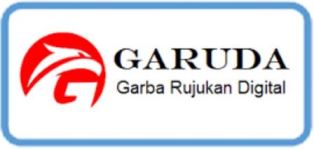KONTRIBUSI MOTIVASI DAN FASILITAS TERHADAP HASIL BELAJAR SISWA SMK PENERBANGAN NUSANTARA KETAPING
 ), Edidas Edidas(2),
), Edidas Edidas(2), (1) Universitas Negeri Padang
(2) Universitas Negeri Padang
 Corresponding Author
Corresponding Author
DOI : https://doi.org/10.24036/voteteknika.v7i3.105542
Full Text:
 Language : id
Language : id
Abstract
The problem in this study is the existence of learning outcomes under the KKM standard of competence in the Electrical Fundamental students of class X Aiframe Powerplant of Nusantara Ketaping Flight Academy. The purpose of this study was to reveal how much the students' motivation and learning facilities contributed individually or together to the learning outcomes of Electrical Fundamental students of class X. This type of research is descriptive correlational. The study population amounted to 137 and a sample of 58 students in class X Aiframe. The sampling technique is done by proportional random sampling. Data on student learning outcomes are obtained from the curriculum section. While data on student motivation and learning facilities were obtained through questionnaires using a Likert scale that had been tested for validity and reliability. The results of data analysis show that (1) Motivation of students and learning facilities together contribute significantly to learning outcomes 27.88%, (2) Motivation of students contributing significantly to student learning outcomes of class X Electrical Fundamental expertise programs of 13, 91%, (3) Learning facilities contribute significantly to the learning outcomes of class X students. Electrical Fundamental skills program at Nusantara Nusantara Ketaping Vocational High School is 8.64%. So it can be concluded that Motivation of Students and Facilities Learning together or partially contributes to class X student learning outcomes Electrical Fundamental competency standard skills program class X Aiframe Powerplant SMK Nusantara Ketaping Flight.
Keywords: Student Motivation, Learning Facilities, Learning Outcomes
References
Nana Sudjana (2011). Penilaian Hasil proses Belajar Mengajar. Bandung : Remaja Rosdakarya.
Riduwan. (2012). Dasar-dasar Statistika.Bandung: Alfabeta.
Sardiman A.M. (2010). Interaksi Dan Motivasi Belajar Mengajar. Jakarta: Raja Grafindo Persada.
Sambas Ali Muhidin dan Maman Abdurahman. (2007). Analisa Korelasi, Regresi, Dan Jalur Dalam Penelitian. Bandung: Pustaka Setia
Slameto. (2010). Belajar dan Faktor-faktor yang Mempengaruhinya. Jakarta: Rineka Cipta
Sugiyono. (2009). Statistika Untuk Penelitian. Bandung: Alfabeta.
Suharsimi Arikunto dan Cepi Saffrudin Abdul Jabar. (2007). Evaluasi Program Pendidikan: Pedoman Teoritis Praktis Bagi Praktisi Pendidikan. Jakarta: PT. BumiAskara. Suharsimi Arikunto. (2010). Prosedur Penelitian. Jakarta: Rineka Cipta
Syaifuddin Azwar. (2012). Penyusunan Skala Psikologi. Yokyakarta : Pustaka Pelajar
Syofian Siregar.(2014).Metode Penelitian Kuantitatif Dilengkapi dengan Perhitungan Manual & SPSS. Jakarta : Kencana
The Liang Gie. (2002). Cara Belajar Yang Efisien. Yogyakarta: Gajah Mada University Press.
Undang-Undang Republik Indonesia Nomor 20 Tahun 2003 Tentang Sistem Pendidikan Nasional
 Article Metrics
Article Metrics
 Abstract Views : 169 times
Abstract Views : 169 times
 PDF Downloaded : 41 times
PDF Downloaded : 41 times
Refbacks
- There are currently no refbacks.



.png)







